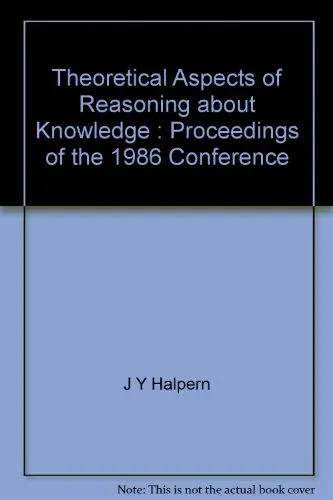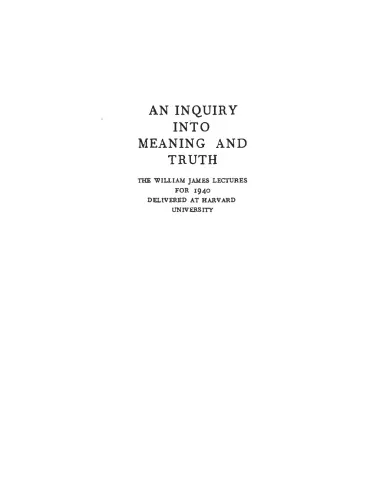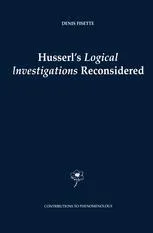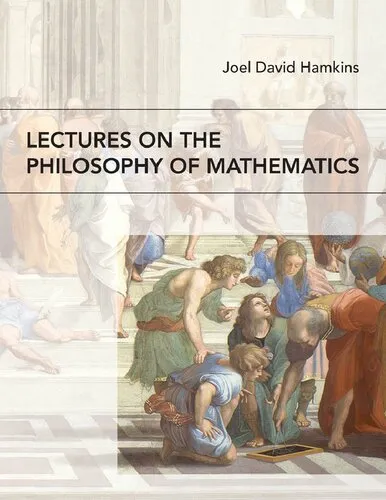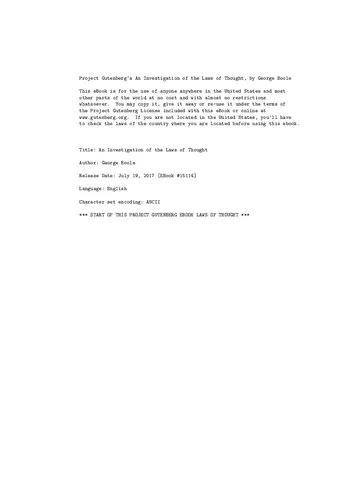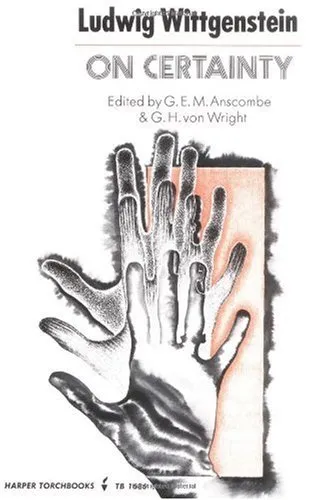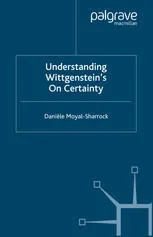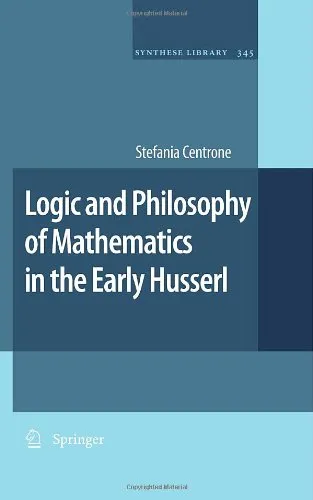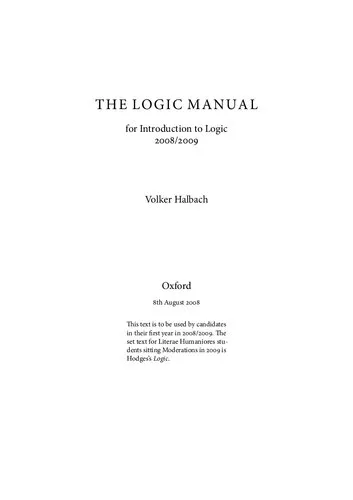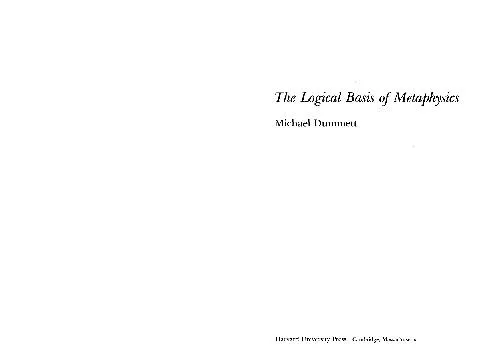Theoretical Aspects of Reasoning About Knowledge. Proceedings of the 1986 Conference
4.5
بر اساس نظر کاربران

شما میتونید سوالاتتون در باره کتاب رو از هوش مصنوعیش بعد از ورود بپرسید
هر دانلود یا پرسش از هوش مصنوعی 2 امتیاز لازم دارد، برای بدست آوردن امتیاز رایگان، به صفحه ی راهنمای امتیازات سر بزنید و یک سری کار ارزشمند انجام بدینRelated Refrences:
معرفی کتاب
کتاب "Theoretical Aspects of Reasoning About Knowledge. Proceedings of the 1986 Conference" مجموعهای از مقالات علمی است که به بررسی جنبههای نظری استدلال دربارهٔ دانش میپردازد. این کنفرانس در سال ۱۹۸۶ برگزار شد و سردبیری این مجموعه را جوزف ی. هالپرن بر عهده داشته است. این کنفرانس مهمترین محققان و نظریهپردازان در زمینه علوم کامپیوتر، منطق و فلسفه را گرد هم آورد.
خلاصهای جامع از کتاب
این کتاب شامل مقالههایی است که به تحلیل و بررسی مسائلی میپردازند که در تعاملات بین سیستمهای کامپیوتری و شناخت انسانی مطرح میشوند. مفاهیم کلیدی مانند Epistemic Logic، Common Knowledge و Distributed Systems در این مجموعه به صورت عمقی مد نظر قرار گرفتهاند. مقالات موجود در کنفرانس، نگاهی به پرسشهای بنیادی دربارهٔ اینکه چگونه دانش میتواند در سیستمهای توزیع شده و همچنین در محیطهای پیچیده مدلسازی شود، میاندازند.
نکات کلیدی
- تحلیل نظریهها و کاربردهای Logic Epistemic در سیستمهای توزیعشده.
- بررسی چگونگی مدلسازی دانش و اطلاعات در contextهای پیچیده.
- ارائه رویکردهای نوین برای حل مسئله همگانیسازی Knowledge.
جملات معروف از کتاب
"دانش چیزی بیش از یک مشاهده نیست، بلکه فرآیندی پیچیده و توزیعشده است که نیازمند ابزارهای نظری و عملی برای تحلیل است."
چرا این کتاب مهم است
این کتاب نقطه عطفی در زمینه مطالعه دانش و اطلاعات در محیطهای پیچیده و توزیع شده است. از یک سو، مقالات این مجموعه به معرفی چالشهای جدید علمی و از سوی دیگر، به ارائه راهحلهایی نوین برای تحلیل دانش در سیستمهای چندعاملی پرداختهاند. فضای بینرشتهای که این کتاب ایجاد کرده، موجب شده تا محققان از زمینههای مختلف بتوانند درک بهتری از مسائل پیچیدهٔ دانش در سیستمهای توزیع یافته بهدست آورند، که بهنوبهٔ خود نوآوریهای بیسابقهای را در دنیای علم ایجاد کرده است.
The book "Theoretical Aspects of Reasoning About Knowledge" captures the profound exploration of knowledge dynamics as discussed during the 1986 conference. It is an accumulation of insights and theories by renowned scholars in artificial intelligence, computer science, and philosophy. This book stands as a crucial reference point for understanding how knowledge can be processed, represented, and reasoned about in various computational contexts.
Detailed Summary of the Book
The series of discussions captured in this book delve into the foundational aspects of reasoning about knowledge. Organized by the prestigious 1986 conference, the proceedings brought together thought leaders and academics to explore multifaceted views spanning logic, epistemology, computer science, and cognitive science. This book serves as a comprehensive account of the theoretical insights discussed, encompassing topics such as modal logic, knowledge representation, and distributed systems.
Key sections explore the nuanced aspects of epistemic logic, emphasizing its applicability to computer science and artificial intelligence. Readers will encounter discussions on the interplay between knowledge and belief, and how these concepts can be rigorously defined and utilized in algorithmic processes. Moreover, the book delves into the algorithms and mathematical frameworks necessary for implementing knowledge reasoning in practical computing environments.
Key Takeaways
- Unified Framework: The book lays out a comprehensive framework for understanding both individual and collective knowledge through formal systems.
- Practical Implications: The exploration of knowledge has implications for designing distributed systems, AI protocols, and improving cognitive science applications.
- Interdisciplinary Approach: By integrating perspectives from multiple disciplines, the book provides a multi-dimensional understanding critical for advanced reasoning models.
- Advanced Techniques: Detailed expositions on modal logic and its extensions present valuable tools for further research and practical application in computing.
Famous Quotes from the Book
"Understanding the calculus of knowledge is akin to mapping the very fabric of intelligent discourse." - Unknown
"When systems communicate, they echo the complexities of reasoning through the subtle language of logic." - Unknown
Why This Book Matters
In an age where machines are increasingly expected to understand and anticipate human thought and activity, the themes of this book are more relevant than ever. "Theoretical Aspects of Reasoning About Knowledge" offers valuable insights for those designing sophisticated AI systems that interact seamlessly with human counterparts. It provides the essential theoretical underpinning needed to pursue innovative research across technology and philosophy.
Additionally, as distributed systems become a critical part of modern infrastructure, understanding how these systems reason and deal with incomplete information is imperative. This book is a cornerstone in the rich interdisciplinary dialogue, fostering developments that will influence how systems learn and reason in the future.
Overall, "Theoretical Aspects of Reasoning About Knowledge" is an essential resource for academics, researchers, and professionals. It challenges readers to expand their understanding, explore the limits of logic, and pursue the development of more advanced, nuanced systems of reasoning.
دانلود رایگان مستقیم
شما میتونید سوالاتتون در باره کتاب رو از هوش مصنوعیش بعد از ورود بپرسید
دسترسی به کتابها از طریق پلتفرمهای قانونی و کتابخانههای عمومی نه تنها از حقوق نویسندگان و ناشران حمایت میکند، بلکه به پایداری فرهنگ کتابخوانی نیز کمک میرساند. پیش از دانلود، لحظهای به بررسی این گزینهها فکر کنید.
این کتاب رو در پلتفرم های دیگه ببینید
WorldCat به شما کمک میکنه تا کتاب ها رو در کتابخانه های سراسر دنیا پیدا کنید
امتیازها، نظرات تخصصی و صحبت ها درباره کتاب را در Goodreads ببینید
کتابهای کمیاب یا دست دوم را در AbeBooks پیدا کنید و بخرید
1342
بازدید4.5
امتیاز0
نظر98%
رضایتنظرات:
4.5
بر اساس 0 نظر کاربران
Questions & Answers
Ask questions about this book or help others by answering
No questions yet. Be the first to ask!
